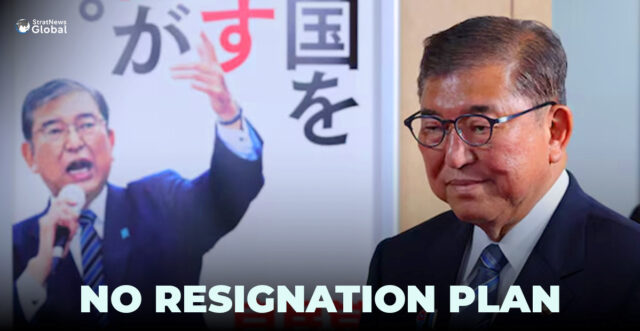Japan‘s Prime Minister Shigeru Ishiba on Wednesday denied resignation plans, countering media reports and a source’s claim that he would step down following a heavy upper house election loss.
Asked about media reports that he had expressed his intention to step down as early as this month, the 68-year-old leader Ishiba told reporters at party headquarters on Wednesday: “I have never made such a statement…The facts reported in the media are completely unfounded.”
The reports came after Ishiba and Trump unveiled a trade deal on Tuesday that lowers tariffs on imports of Japanese autos and spares Tokyo from punishing new levies on other goods.
Ishiba chose not to quit straight after the election to prevent political instability as the August 1 deadline for clinching the trade deal approached, a source close to the prime minister said, asking not to be identified because they are not authorised to talk to the media.
Ishiba will announce his resignation next month, Japanese media reported earlier.
His departure less than a year after taking office would trigger a succession battle within the ruling Liberal Democratic party as it contends with challenges from new political parties, particularly on the right, that are chipping away at its support.
‘Japanese First’
Among them is the “Japanese First” Sanseito far-right group, which surged in Sunday’s vote, growing its representation in the 248-seat upper house to 14 from one. The party has attracted voters with pledges to curb immigration, slash taxes, and provide financial relief to households squeezed by rising prices.
Ishiba, a former defence minister who failed four times to win the party leadership, defeated hardline conservative Sanae Takaichi in his fifth attempt in a runoff last year.
Whoever succeeds him as head of the LDP, which has ruled Japan for most of the post-war period, would have to govern without a majority in either house of parliament following the government’s lower house election defeat in October.
Their immediate priority would be to secure support from enough opposition party lawmakers to win confirmation as prime minister.
Any incoming leader is unlikely to call a general election straight away, in order to bolster the party’s appeal before seeking a mandate from voters, the source said.
(With inputs from Reuters)





